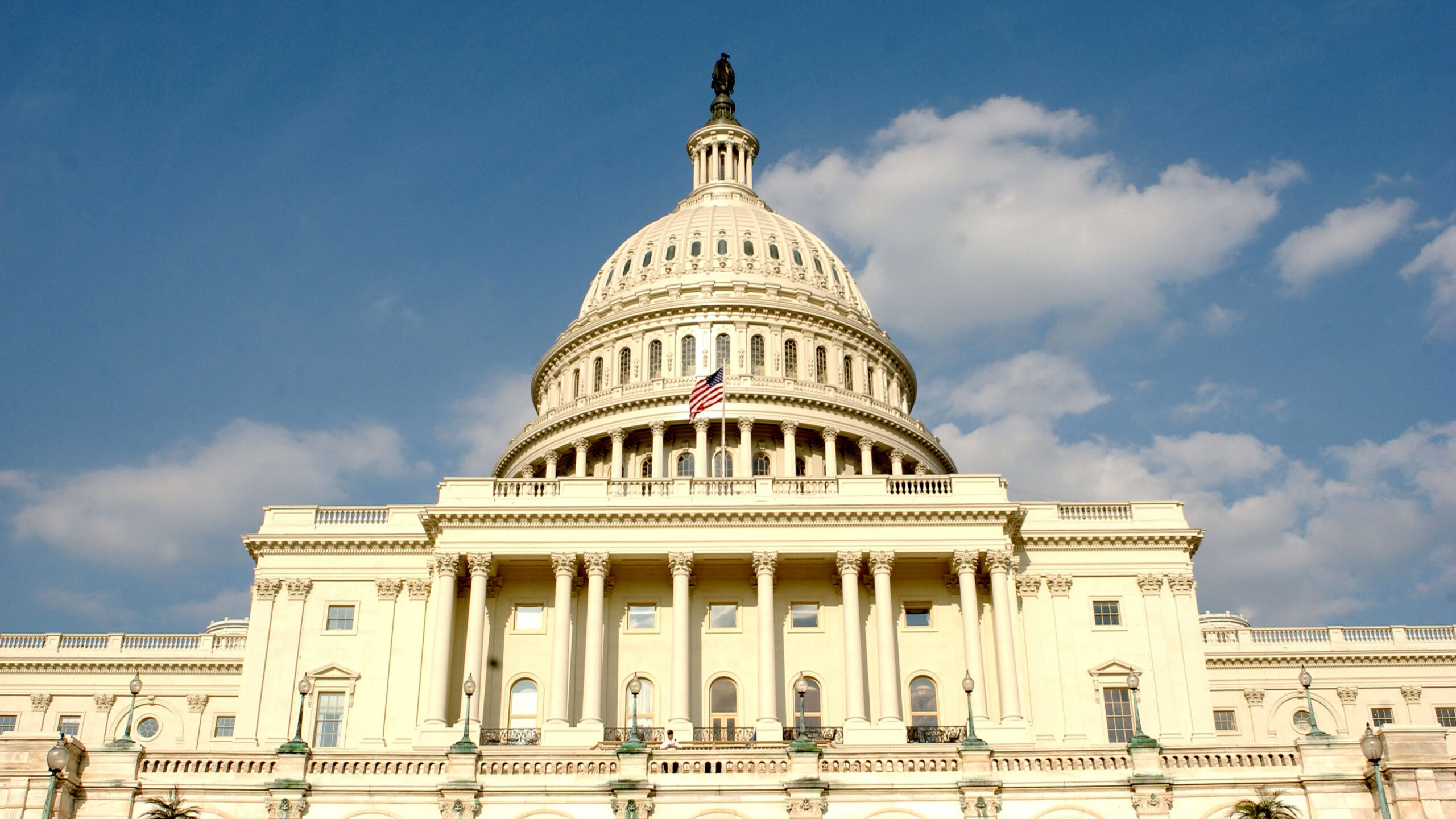Biden signs a package of spending bills passed by Congress just hours before a shutdown deadline
Mar 9, 2024, 3:00 PM

FILE: The U.S. Capitol is shown in Washington, DC. (Stefan Zaklin /Getty Images)
(Stefan Zaklin /Getty Images)
WASHINGTON (AP) — President Joe Biden on Saturday signed a $460 billion package of spending bills approved by the Senate in time to avoid a shutdown of many key federal agencies. The legislation’s success gets lawmakers about halfway home in wrapping up their appropriations work for the 2024 budget year.
The measure contains six annual spending bills and had already passed the House. In signing it into law, Biden thanked leaders and negotiators from both parties in both chambers for their work, which the White House said will mean that agencies “may continue their normal operations.”
Meanwhile, lawmakers are negotiating a second package of six bills, including defense, in an effort to have all federal agencies fully funded by a March 22 deadline.
“To folks who worry that divided government means nothing ever gets done, this bipartisan package says otherwise,” Senate Majority Leader Chuck Schumer, D-N.Y., said after lawmakers passed the measure Friday night just hours before a deadline.
He said the bill’s passage would allow for the hiring of more air traffic controllers and rail safety inspectors, give federal firefighters a raise and boost support for homeless veterans, among other things.
The Senate passed the bill by a vote of 75-22. Lawmakers sought votes on several amendments and wanted to have their say on the bill and other priorities during debate on the floor. It had been unclear midday if senators would be able to avert a short shutdown, though eventual passage was never really in doubt.
“I would urge my colleagues to stop playing with fire here,” said Sen. Susan Collins, the top-ranking Republican member of the Senate Appropriations Committee. “It would be irresponsible for us not to clear these bills and do the fundamental job that we have of funding government. What is more important?”
The votes came more than five months into the current budget year after congressional leaders relied on a series of stopgap bills to keep federal agencies funded for a few more weeks or months at a time while they struggled to reach agreement on full-year spending.
In the end, total discretionary spending set by Congress is expected to come in at about $1.66 trillion for the full budget year ending Sept. 30.
Republicans were able to keep non-defense spending relatively flat compared with the previous year. Supporters say that’s progress in an era when annual federal deficits exceeding $1 trillion have become the norm. But many Republican lawmakers were seeking much steeper cuts and more policy victories.
The House Freedom Caucus, which contains dozens of the GOP’s most conservative members, urged Republicans to vote against the first spending package and the second one still being negotiated.
Democrats staved off most of the policy riders that Republicans sought to include in the package. For example, they beat back an effort to block new rules that expand access to the abortion pill mifepristone. They were also able to fully fund a nutrition program for low-income women, infants and children, providing about $7 billion for what is known as the WIC program. That’s a $1 billion increase from the previous year.
Republicans were able to achieve some policy wins, however. One provision will prevent the sale of oil in the Strategic Petroleum Reserve to China. Another policy mandate prohibits the Justice Department from investigating parents who exercise free speech at local school board meetings.
Another provision strengthens gun rights for certain veterans, though opponents of the move said it could make it easier for those with very serious mental health conditions like dementia to obtain a firearm.
“This isn’t the package I would have written on my own,” said Sen. Patty Murray, the Democratic chair of the Senate Appropriations Committee. “But I am proud that we have protected absolutely vital funding that the American people rely on in their daily lives.”
Sen. Rand Paul, R-Ky., said one problem he sees with the bill is that there was too much compromise, and that led to too much spending.
“A lot of people don’t understand this,” he said. “They think there is no cooperation in Washington and the opposite is true. There is compromise every day on every spending bill.”
“It’s compromise between big-government Democrats and big-government Republicans,” he added.
Still, with a divided Congress and a Democratic-led White House, any bill that doesn’t have buy-in from members of both political parties stands no chance of passage.
The bill also includes more than 6,600 projects requested by individual lawmakers with a price tag of about $12.7 billion. The projects attracted criticism from some Republican members, though members from both parties broadly participated in requesting them on behalf of their states and congressional districts. Paul called the spending “sort of the grease that eases in billions and trillions of other dollars, because you get people to buy into the total package by giving them a little bit of pork for their town, a little bit of pork for their donors.”
But an effort by Sen. Rick Scott, R-Fla, to strip out the projects mustered only 32 votes with 64 against. Murray said Scott’s effort would overrule “all the hard work, all the input we asked everyone to provide us about projects that would help their constituents.”
Even though lawmakers find themselves passing spending bills five months into the budget year, Republicans are framing the process as improved nonetheless because they broke the cycle of passing all the spending bills in one massive package that lawmakers have little time to study before being asked to vote on it or risk a government shutdown. Still, others said that breaking up funding into two chunks of legislation war hardly a breakthrough.
The first package covers the departments of Justice, Veterans Affairs, Agriculture, Interior and Transportation, among others.













